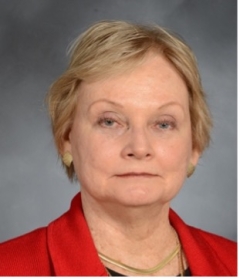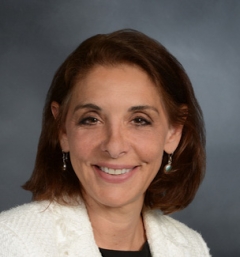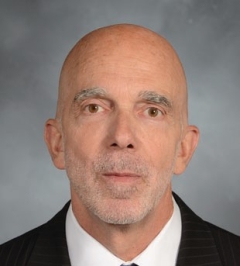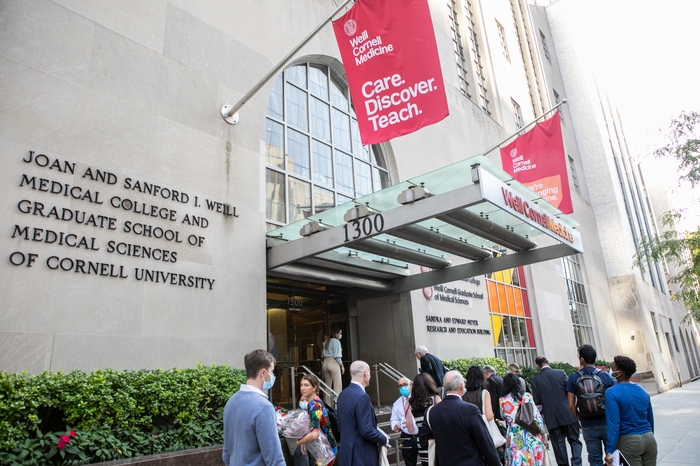The end of 2023 will mark the close of several longstanding careers at Weill Cornell Medicine, including three senior administrators who total more than 80 years of distinguished service to the institution. They are L. Jeanie Faulkner, deputy secretary in the Office of the Secretary, whose tenure spanned 20 years; Angela Lent, senior director of staff and organizational development, who has been at the institution for 18 years; and Scott Puccino, chief financial officer, who served for 43 years.
The trio’s roles all supported key elements of Weill Cornell Medicine’s mission. Faulkner was responsible for the day-to-day management of all aspects of the Office of the Secretary’s governance work, including policies and procedures, compliance, communications and operations. Lent nurtured the careers of staff members by creating programs supporting institutional equity, career advancement, learning and development, and diversity, inclusion and engagement. Puccino oversaw all aspects of Weill Cornell Medicine’s financial management, analysis and reporting, as well as the institution’s strategic expansion throughout New York City.
Here, Faulkner, Lent and Puccino share insights about their careers with Weill Cornell Medicine and advice to colleagues, as well as their future plans.
L. Jeanie Faulkner, Office of the Secretary
What kept you at Weill Cornell Medicine for so long?
Actually, I came with the intention that Weill Cornell would be my final employer. I’ve been able to do a lot of things I wanted to in terms of modernizing the department. I was able to take a lot of my strengths from the corporate world and apply them here to enhance many initiatives.
How have you seen the institution change across your career?
 L. Jeanie Faulkner
L. Jeanie FaulknerWe’ve gone from a small but very talented organization in every part of the mission, including the administrative team, and really expanded into a global enterprise. WCM had long been global in research, education and clinical activities, but now we operate with a global vision that guides every decision. All across the board, we’ve done amazing things, not the least working with Cornell University to establish Weill Cornell Medicine-Qatar, the first medical school created by an American university overseas.
What advice would you give to your colleagues going forward?
First, always play to your strengths. But as you’re assessing those strengths, be cognizant of how the institution is evolving daily and which of those strengths will really move that forward. Doing this will benefit both you and the institution.
What’s next for you?
Hiking in the Olympic Mountains; landscaping my yard; being a master gardener—which I am already but haven’t been able to practice; and having dinner parties on my deck with friends.
Angela Lent, Office of Staff and Organizational Development
What kept you at Weill Cornell Medicine for so long?
Over the years, the organization changed and progressed so much and there were always opportunities to grow and innovate. This, along with interacting with the brightest and most creative colleagues, made me feel energized and motivated every day. I never felt the need to go elsewhere.
How have you seen the institution change across your career?

Angela Lent
It’s difficult to highlight the differences I’ve experienced in the past 18 years, as the organization has expanded in every way. From an HR perspective, growth in the number and diversity of our staff has been significant, and HR has enhanced services over the years to meet the changing needs of staff. Most recently, I’m thrilled that organizational leadership has supported the creation and growth of the Office for Staff and Organizational Development, which is doing tremendous work to create employee-centric initiatives and resources.
What advice would you give to your colleagues going forward?
Don’t be overwhelmed by the complexity of the organization, but instead learn all you can and embrace any chance to support our mission with the work that you do. I would also remind them that there are tremendous opportunities for people who are willing to work hard and power through challenging times.
What’s next for you?
Working at Weill Cornell has been so embedded in me that I’m honestly not sure how it will feel to move on. However, I really look forward to typical retirement activities such as travel, golf, gardening and family time. Mostly, slowing down, having fun, trying new things and appreciating life’s simple pleasures.
Scott Puccino, Office of the Dean
What kept you at Weill Cornell Medicine for so long?
What we do at Weill Cornell Medicine matters locally, nationally and globally, and that always meant something to me. Plus, I’ve worked with some amazing people. I’ve been very fortunate.
How have you seen the institution change across your career?

Scott Puccino
When I started here in 1980, we were this boutique-y medical school and didn’t have much presence in the city. I think Dean Emeritus Tony Gotto and Board of Fellows Chair Emeritus Sandy Weill changed the place dramatically. We started fundraising vigorously and opened several new facilities, and now there’s a Midtown Manhattan expansion. We’re in a hypercompetitive market in a hypercompetitive location and we’ve held our own.
What advice would you give to your colleagues going forward?
Keep looking forward—we can’t rest on our laurels in such a competitive market. Keep fundraising and keep planning. We have a powerhouse parent university and a powerhouse partner in NewYork-Presbyterian and we should take full advantage of those relationships.
What’s next for you?
A lot of traveling and seeing parts of the world I haven’t seen, and just enjoying it while I’m still healthy.

